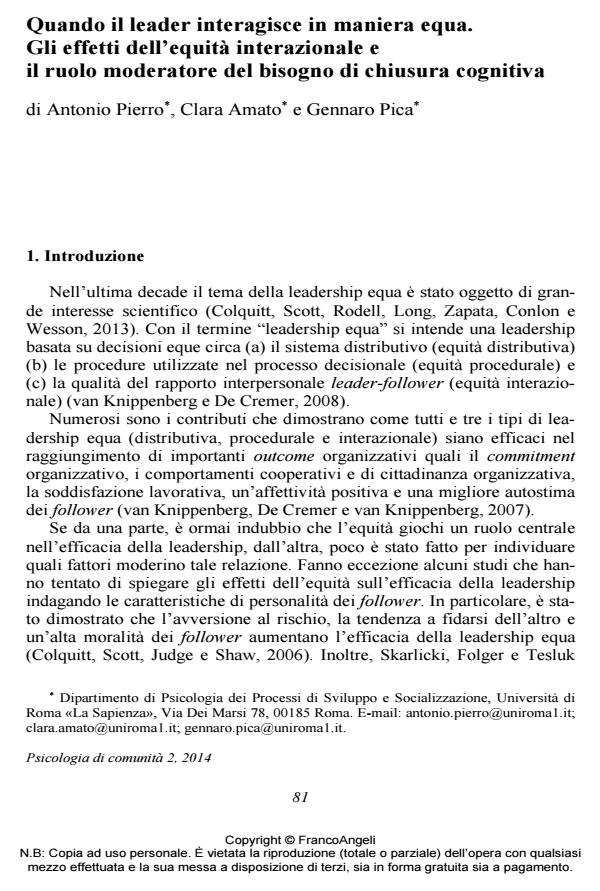When the leader interacts fairly. The effects of the interactional fairness and the moderating role of the Need for Cognitive Closure
Journal title PSICOLOGIA DI COMUNITA’
Author/s Antonio Pierro, Clara Amato, Gennaro Pica
Publishing Year 2015 Issue 2014/2
Language Italian Pages 13 P. 81-93 File size 71 KB
DOI 10.3280/PSC2014-002007
DOI is like a bar code for intellectual property: to have more infomation
click here
Below, you can see the article first page
If you want to buy this article in PDF format, you can do it, following the instructions to buy download credits

FrancoAngeli is member of Publishers International Linking Association, Inc (PILA), a not-for-profit association which run the CrossRef service enabling links to and from online scholarly content.
The present research examines the moderating role of need for closure on the relationship between interactional fairness and the leadership effectiveness. Need for closure, reflecting a desire to reduce uncertainty, is proposed here to lead people to rely more strongly on fairness when making judgments about the leader. Because interactional fairness has been found to reduce uncertainty (Van den Bos e Lind, 2002), it has been hypothesized that leadership effectiveness was contingent on interactional fairness especially for employees with a higher motivation toward closure. Results confirmed the hypothesis: the relationship between interactional fairness and leadership effectiveness is stronger for high-need for closure (vs. low need for closure) employees.
Keywords: Leadership interactional fairness, leader-follower relationship, need for closure, uncertainty reduction, effectiveness of leadership.
Antonio Pierro, Clara Amato, Gennaro Pica, Quando il leader interagisce in maniera equa. Gli effetti dell’equità interazionale e il ruolo moderatore del bisogno di chiusura cognitiva in "PSICOLOGIA DI COMUNITA’" 2/2014, pp 81-93, DOI: 10.3280/PSC2014-002007